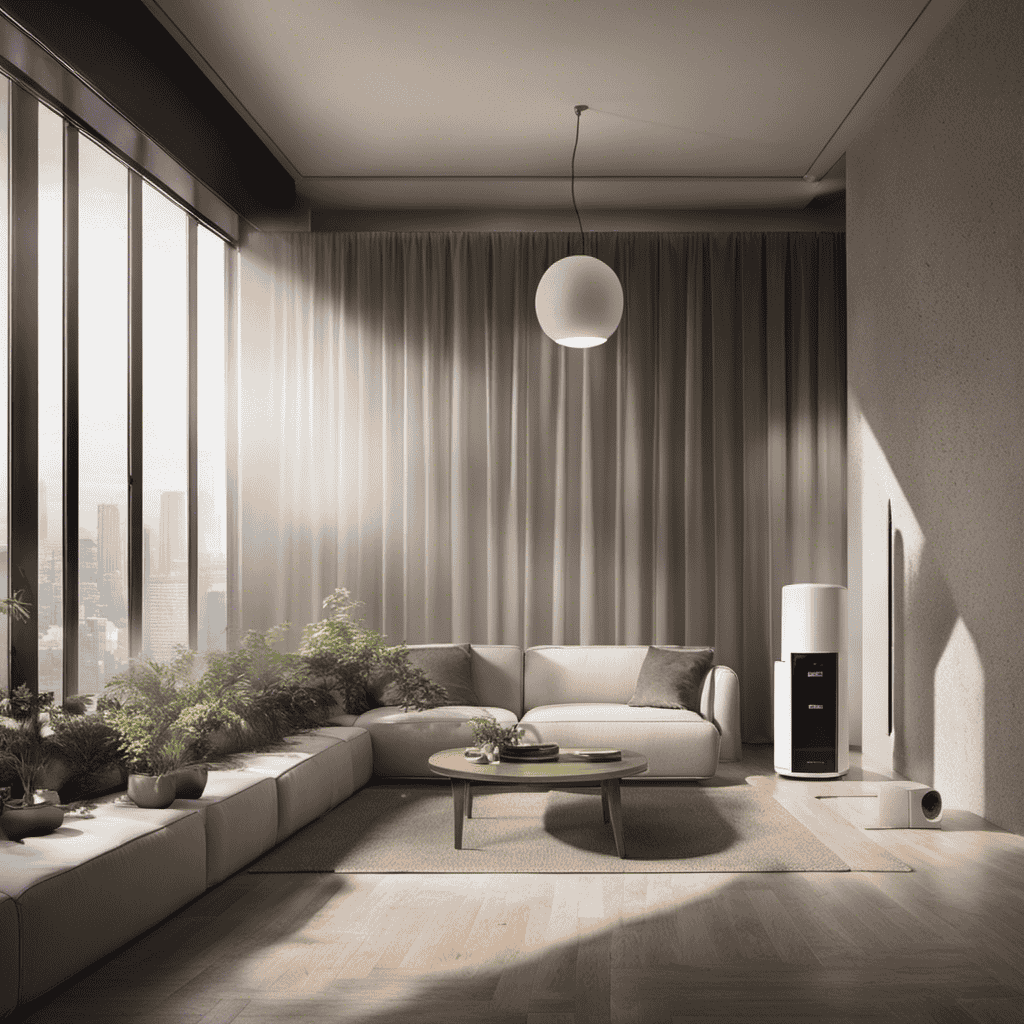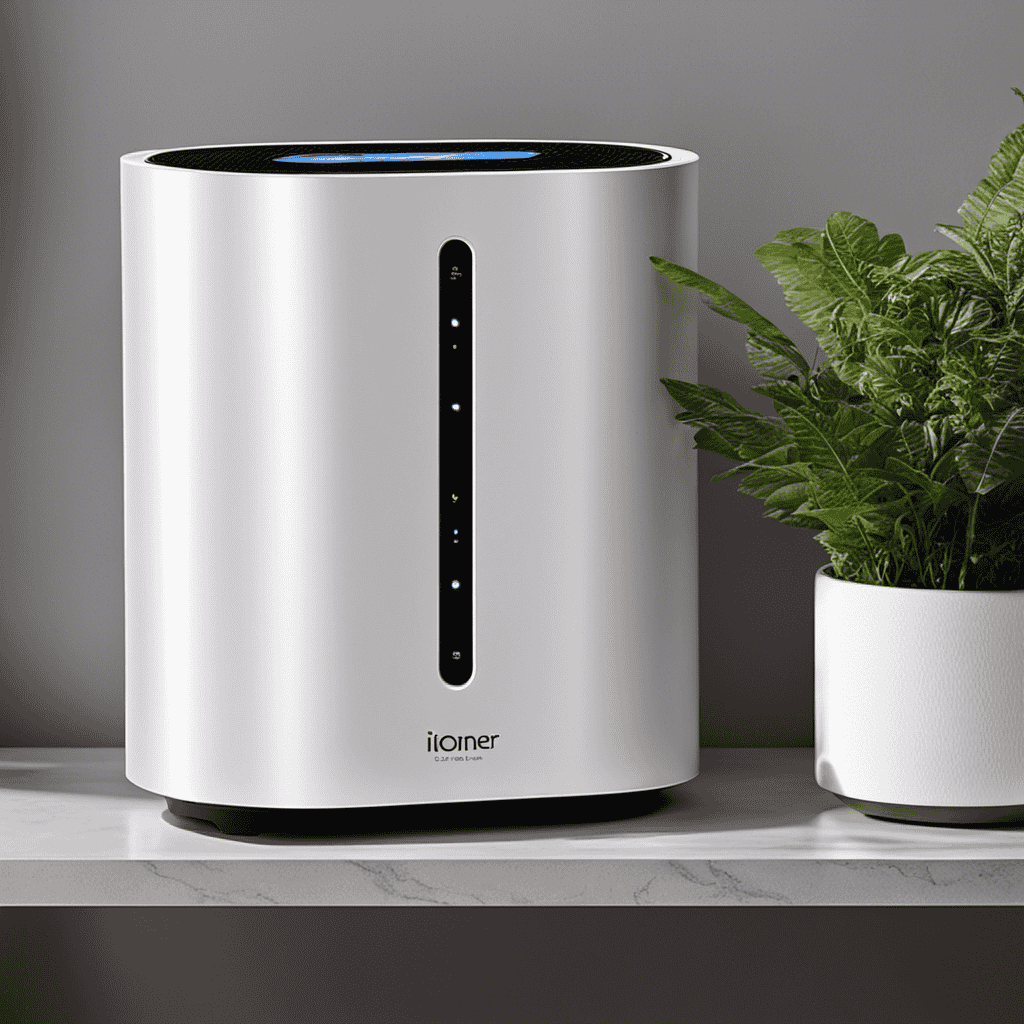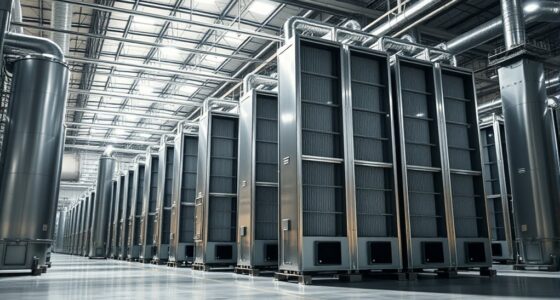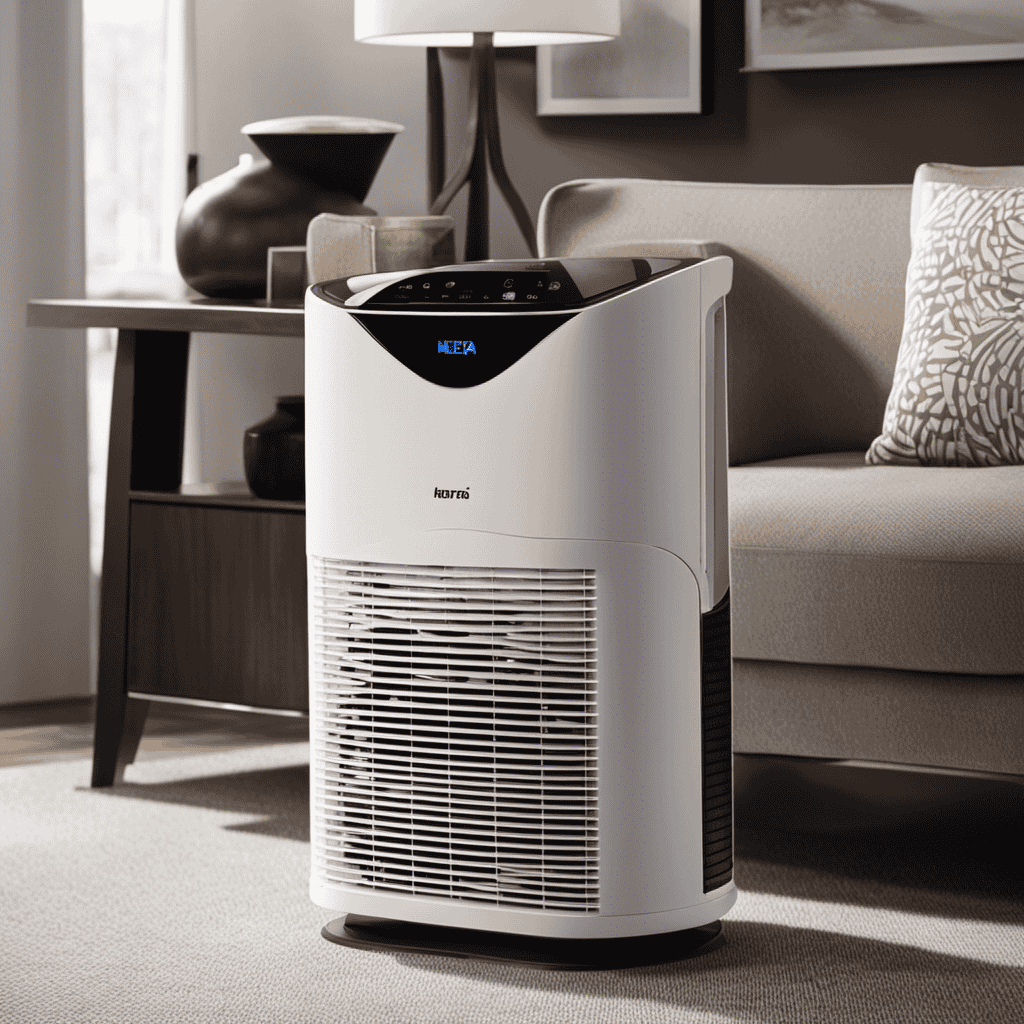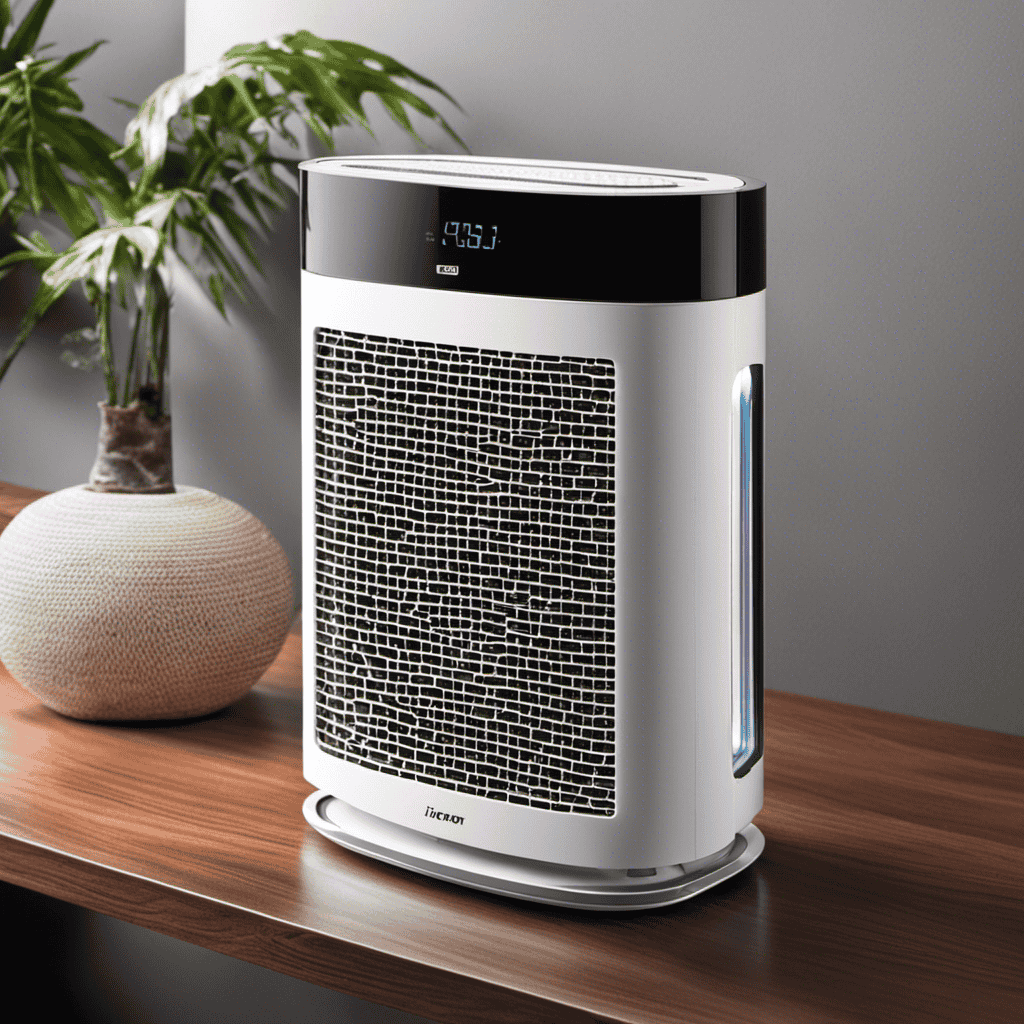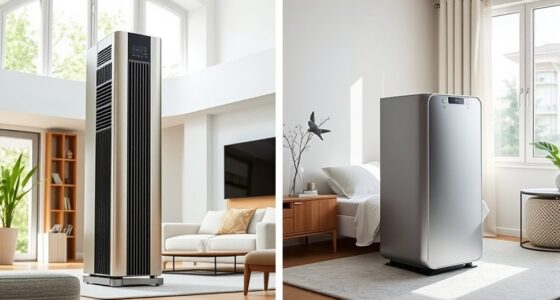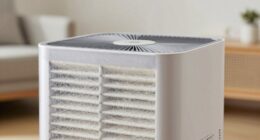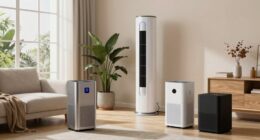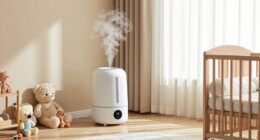I’ve often pondered the true impact of an air purifier. Let me share something with you, the outcomes could indeed be startling.
In this article, we’ll dive into the science behind air purifiers and explore their impact on our health. I’ll break down the benefits of having an air purifier in your home and explain how these devices actually work to improve indoor air quality.
So, if you’re curious about making your air cleaner and healthier, keep reading.
Key Takeaways
- Air purifiers improve indoor air quality by removing pollutants and allergens.
- Different types of indoor pollutants can lead to various health risks.
- Air purifiers greatly improve indoor air quality and reduce health risks.
- Factors to consider when choosing an air purifier include brand quality, filter maintenance, room size, and additional features.
The Science Behind Air Purifiers
If you’re wondering how much of a difference an air purifier can make, let’s dive into the science behind it.
Air purifiers are designed to improve indoor air quality by removing pollutants and allergens from the air. These devices work by using filters to trap particles such as dust, pollen, pet dander, and smoke, as well as harmful gases and odors.
The effectiveness of an air purifier depends on factors such as the type of filter used, the size of the room, and the level of air pollution. Studies have shown that air purifiers can significantly reduce the concentration of indoor air pollutants, leading to improved respiratory health and a decrease in allergy symptoms.
Understanding Air Quality and Its Impact on Health
Understanding the impact of air quality on health is crucial. Indoor pollutants can have significant consequences for our well-being, leading to a range of health risks. To fully grasp the extent of these risks, it is essential to consider the different types of indoor pollutants and their potential effects on our bodies.
| Type of Indoor Pollutant | Health Risks |
|---|---|
| Volatile Organic Compounds (VOCs) | Eye, nose, and throat irritation; headaches; dizziness; asthma exacerbation |
| Particulate Matter (PM) | Respiratory issues; cardiovascular problems |
| Carbon Monoxide (CO) | Headaches; dizziness; nausea; impaired cognitive function |
| Formaldehyde | Eye, nose, and throat irritation; allergic reactions; respiratory issues |
| Radon | Lung cancer |
Benefits of Using an Air Purifier in Your Home
Using an air purifier in my home can greatly improve the quality of indoor air and help reduce the health risks associated with indoor pollutants.
Not only does it provide a cost-effective solution, but it also offers long-term health benefits.
Air purifiers work by filtering out harmful particles such as dust, pollen, pet dander, and mold spores, ensuring cleaner air to breathe. By removing these pollutants, air purifiers can help alleviate symptoms of allergies, asthma, and other respiratory conditions.
Additionally, they can help eliminate unpleasant odors and harmful chemicals, promoting a healthier living environment.
Investing in an air purifier is a wise decision for anyone concerned about their indoor air quality and the potential health implications associated with it.
How Air Purifiers Work to Improve Indoor Air Quality
Air purifiers work by filtering out harmful particles in the air, improving indoor air quality and promoting a healthier living environment. These devices are designed to capture and remove common pollutants found in indoor air, such as dust, pollen, pet dander, mold spores, and volatile organic compounds (VOCs).
The effectiveness of air purifiers in removing these pollutants depends on various factors, including the type of filter used, the size of the unit, and the airflow rate. HEPA filters are considered the most effective in removing airborne particles as small as 0.3 microns, while activated carbon filters are efficient in adsorbing odors and chemicals.
It is important to note that air purifiers cannot eliminate all pollutants, especially those that are not airborne or are already deeply embedded in surfaces. Regular cleaning and maintenance of the purifier and the indoor environment are also crucial to ensure its optimal performance.
Factors to Consider When Choosing an Air Purifier
When choosing an air purifier, it’s important to consider factors such as the size of the unit, the type of filter used, and the specific needs of your living environment. These factors can greatly impact the effectiveness of the air purifier in improving indoor air quality.
Here are some key points to keep in mind:
-
Air purifier brands: Research different brands and read reviews to determine which ones are known for their quality and performance. Some popular brands include Dyson, Honeywell, and Blueair.
-
Filter maintenance: Regularly clean or replace the filters in your air purifier to ensure optimal performance. This will help remove pollutants, allergens, and other harmful particles from the air.
-
Room size: Consider the square footage of the room where you plan to use the air purifier. Choosing the right size unit for your space is crucial for effective air cleaning.
Frequently Asked Questions
Are Air Purifiers Effective in Reducing Allergies and Asthma Symptoms?
Air purifiers can be effective in reducing allergies and asthma symptoms by reducing indoor air pollution. They can have a positive impact on respiratory health by removing airborne particles and allergens from the air.
Can Air Purifiers Remove Viruses and Bacteria From the Air?
Air purifiers work wonders in removing viruses and bacteria from the air. They’re like tiny superheroes fighting off the invisible villains. With their effectiveness and benefits, you can breathe easy knowing you’re protected.
Do Air Purifiers Eliminate Odors From Cooking and Pets?
Yes, air purifiers can eliminate odors from cooking and pets. Regular air purifier maintenance is important for optimal performance. Air purifiers have a significant impact on improving indoor air quality by removing airborne particles and odors.
Can Air Purifiers Help With Sleep Quality and Overall Well-Being?
Air purifiers can make a significant difference in sleep quality and overall well-being. By reducing indoor air pollution and improving respiratory health, they create a cleaner and healthier environment, promoting a more restful sleep and enhancing overall wellness.
How Often Should the Filters in Air Purifiers Be Replaced?
When it comes to air purifier maintenance, knowing when to change the filters is crucial. Depending on the type of purifier and the air quality, filters usually need to be replaced every 3-6 months for optimal performance.
Does an Ionizer Air Purifier Make a Significant Difference in Air Quality?
Yes, an ionizer air purifier functioning can make a significant difference in air quality by effectively removing airborne particles such as allergens, dust, and smoke. The ionizer releases negatively charged ions that attach to the positively charged particles in the air, making them too heavy to remain airborne and causing them to fall out of the breathable air.
Conclusion
Overall, after thoroughly researching the topic, it’s clear that air purifiers can make a significant difference in improving the quality of indoor air.
By understanding the science behind these devices and their ability to filter out harmful particles, it becomes evident that using an air purifier in your home can have numerous benefits for your health.
Factors such as the type of air purifier and its coverage area should be considered when selecting one.
So, if you want to breathe cleaner and healthier air, investing in an air purifier is definitely worth it.
